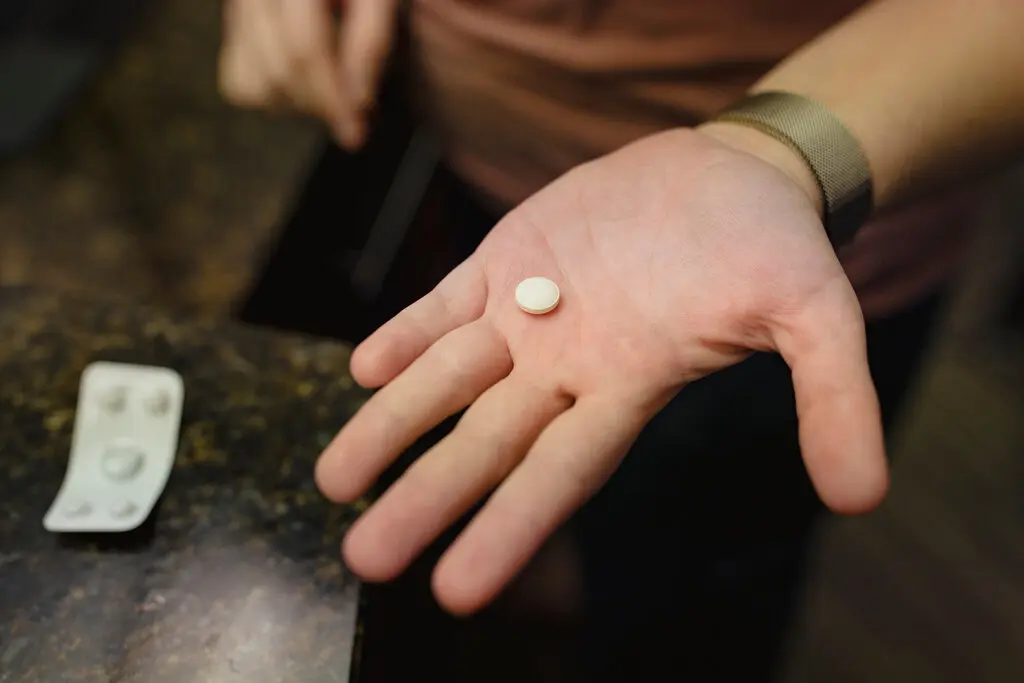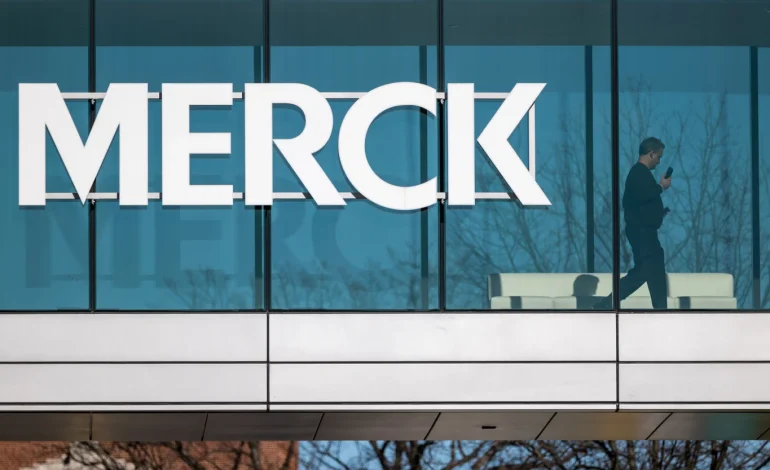Merck has entered into a licensing agreement with Chinese biopharmaceutical company Hansoh Pharma to develop and commercialize an experimental oral weight-loss drug.
The deal, announced on Wednesday, is valued at up to $2 billion and underscores Merck’s bid to enter the rapidly growing obesity treatment market.
As part of the agreement, Merck will pay Hansoh an initial $112 million, with the potential for an additional $1.9 billion in milestone payments linked to the drug’s development, regulatory approval, and commercialization. Hansoh may also receive royalties on global sales.
This strategic move places Merck in the competitive race to develop oral weight-loss treatments that could rival injectable drugs from market leaders Novo Nordisk and Eli Lilly.
The partnership gives Merck exclusive global rights to develop, manufacture, and market Hansoh Pharma’s investigational drug, HS-10535. The drug is a small molecule GLP-1 receptor agonist, a class of medication that has become the backbone of obesity and diabetes treatments. Drugs like Novo Nordisk’s Wegovy and Ozempic use similar mechanisms to curb appetite and regulate blood sugar, but they are administered via injection.
An oral version of a GLP-1 drug could give Merck a competitive edge, as many patients prefer pills over injections. The development of such a treatment would position Merck alongside other pharmaceutical giants, including Pfizer and Roche, which are also racing to bring oral weight-loss drugs to market.
Dean Li, president of Merck Research Laboratories, emphasized the broader potential of the new drug.
“Through this agreement, we aim to build on our experience targeting incretin biology to evaluate HS-10535 and its potential to provide additional cardiometabolic benefits beyond weight reduction,” he said.
Unlike other GLP-1 drugs already on the market, Hansoh’s HS-10535 is still in the preclinical stage and has not yet been tested in human trials. Merck has not specified which diseases it plans to target first. However, its CEO, Rob Davis, has previously indicated that the company is seeking GLP-1 therapies that offer health benefits beyond weight loss, such as cardiovascular or liver health improvements.
“If you can show cardiovascular outcome, if you can show diabetes outcome, if you can see fatty liver disease benefits… that is an area where we think there’s opportunity,”Davis stated at a recent conference.
The global obesity drug market is expected to exceed $100 billion annually by the early 2030s, driven by rising rates of obesity and increasing demand for treatments. Injectable GLP-1 drugs like Wegovy and Mounjaro have already become blockbusters, and demand for more convenient oral alternatives is growing rapidly.
Merck’s move comes as other major pharmaceutical companies, including Pfizer and Roche, are also pursuing oral GLP-1 therapies. These companies aim to capitalize on the market’s shift from injectable to oral treatments, which offer a more convenient option for patients.
AstraZeneca made a similar move last year, licensing an oral GLP-1 drug from another Chinese firm, Eccogene. That drug has since advanced to mid-stage clinical trials. The growing number of licensing deals reflects the increasing role of Chinese biotech firms in the development of next-generation therapies for global markets.
Merck’s experience in cardiometabolic diseases and its existing pipeline of metabolic treatments could provide a competitive advantage.
“We continue to leverage science-driven business development to augment and complement our robust pipeline,” said Dean Li.
He highlighted Merck’s strategy of expanding its drug portfolio in the metabolic disease space.
The financial terms of the deal reflect the significant potential that Merck sees in HS-10535. The company will make an initial payment of $112 million to Hansoh Pharma, which it plans to record as a pre-tax charge in its fourth-quarter earnings. The charge will amount to $0.04 per share, affecting both its GAAP and non-GAAP financial results.
In addition to the upfront payment, Hansoh Pharma is eligible to receive up to $1.9 billion in milestone payments as the drug progresses through clinical development, regulatory approval, and eventual commercialization. Hansoh may also co-promote or independently commercialize the drug in China under certain conditions.
Merck’s stock responded positively to the announcement, rising 1.1% in pre-market trading. Investors are optimistic that an oral GLP-1 drug could give Merck a lucrative foothold in the fast-growing obesity drug market.
If successfully developed, an oral GLP-1 drug could be a game-changer for patients. Injectable GLP-1 treatments, while effective, require weekly or daily injections, which can be a deterrent for some patients. Pills, on the other hand, offer a simpler, less invasive method of treatment, potentially improving patient compliance and accessibility.
The medical community has also pointed out that GLP-1 drugs may have benefits beyond weight loss. Recent studies suggest these drugs may help reduce the risk of cardiovascular disease, improve liver health, and better manage diabetes. If HS-10535 delivers on this broader promise, it could appeal to a larger market of patients and healthcare providers.
The deal with Hansoh Pharma highlights the growing influence of Chinese biotech firms on the global pharmaceutical landscape. Companies like Hansoh and Eccogene are emerging as key players in the development of new therapies, especially in the high-demand areas of obesity, diabetes, and cardiometabolic diseases.
For Hansoh Pharma, this agreement with Merck strengthens its position as a leader in China’s pharmaceutical innovation sector. The company, which is listed on the Hong Kong Stock Exchange, has previously been ranked among the top 100 global pharmaceutical firms. Eliza Sun, executive director of the board at Hansoh Pharma, called the partnership with Merck a significant milestone, stating:
“Hansoh Pharma is becoming an emerging leader in metabolic diseases, and we see Merck’s expertise and capabilities as key to accelerating the development of this promising asset for patients worldwide.”
This deal continues a broader trend of Western pharmaceutical companies forging partnerships with Chinese biotech firms to gain access to promising drug candidates. These collaborations provide Chinese companies with a pathway to global markets while enabling multinational firms to expand their pipelines with innovative treatments.
CNBC, the Financial Times, and Merck contributed to this report.









